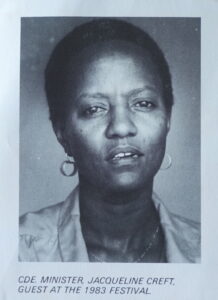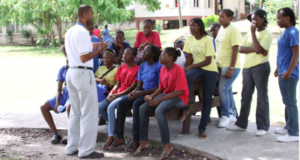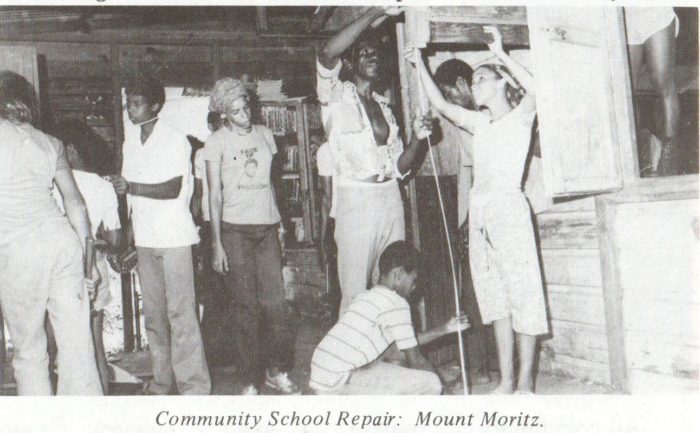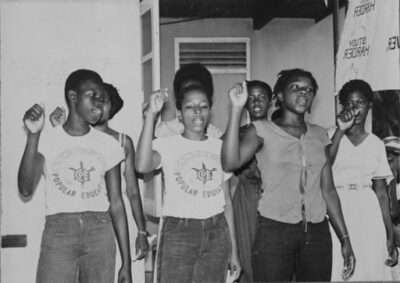What is education for?
What is the purpose of education in the English speaking Caribbean in general and Grenada in particular?
For the English speaking countries of the Caribbean the purpose of education of their predominantly African-Caribbean and Indo-Caribbean population was to teach specific pieces of knowledge that would assist imperial Britain in its theft of their labour and resources. With the coming of independence to countries in the region the new leaders appeared not to move far from the colonial model of education. However, things are slowly changing and apparently moving in a positive direction.
However, over thirty years ago the post colonial model of education was that bequeathed to the
 newly independent territories. In Grenada of the early 1970s the New Jewel Movement (NJM) formed the view that education was to be more than this. They spelt out that education was to be all encompassing, with the emphasis on equipping the people of Grenada with the tools necessary for learning. In his 30th October 1980 speech, Maurice Bishop, the NJM Leader and Prime Minister of Revolutionary Grenada stated, “..Education is not primarily about certification. Education is really much, much more about preparing us for life and preparing us for the real world…”
newly independent territories. In Grenada of the early 1970s the New Jewel Movement (NJM) formed the view that education was to be more than this. They spelt out that education was to be all encompassing, with the emphasis on equipping the people of Grenada with the tools necessary for learning. In his 30th October 1980 speech, Maurice Bishop, the NJM Leader and Prime Minister of Revolutionary Grenada stated, “..Education is not primarily about certification. Education is really much, much more about preparing us for life and preparing us for the real world…”
For even the poorest of societies, education for all is essential if poverty is to be left behind. This was the reason that the Peoples Revolutionary Government prioritised the education of all during the Revolution. This view is now the mainstream. In their publication Rethinking Education in the Caribbean, September 2015, the Caribbean Examinations Council stated: –
“…the Caribbean today needs an education system which is an effective vehicle of human empowerment and social transformation. To create this we must first ask ourselves ‘What must Education achieve in the contemporary Caribbean?’
Tinkering with our present education systems has not worked. A couple hundred millions of donor and tax payer dollars have been spent in the last 20 years on projects of all kinds in curriculum development, education administration reform, primary school improvement, secondary education reform and more, but the system is yet to show levels of improvement commensurate with these investments. Additionally, this does not take into account the even greater sums spent on physical infrastructural expansion and enhancements. It is not that many of these projects have intrinsically failed; it is more that we have failed to create the synergies and apply the lessons of many of these projects to drive systemic transformation…” https://www.cxc.org/rethinking-education-in-the-caribbean/.”

We believe that the topics below will remind us what was achieved, and could be achieved, by a poor nation just released from bondage and how the example of Grenada could provide the energy required to advance education for all in the Caribbean.
Revo’ Factsheet on Education
On March 13, 1979 the New Jewel Movement (NJM) seized power from the corrupt and brutal Eric Gairy, Prime Minister of Grenada. The Grenadian people had, through the NJM, made it clear that education was a priority. Following the Revo’ the newly created Peoples Revolutionary Government, led by the NJM, appointed Jacqueline Creft as the Minister of Education to bring about these momentous changes. Over the 4½ years of the Revo’ the campaign for a proper education led to the successes outlined in the Revo’ Factsheet on Education, see http://grenada-forwardever.net/wp-content/uploads/2020/07/Education-min.pdf.
 These factsheets are a summary of some of the gains of the Revo’ and are designed to inform current and future generations of its successes. Please download, read and circulate. If you have any comments please contact the author, Steve Cushion at info@grenada-forwardever.net.
These factsheets are a summary of some of the gains of the Revo’ and are designed to inform current and future generations of its successes. Please download, read and circulate. If you have any comments please contact the author, Steve Cushion at info@grenada-forwardever.net.
Education is a Must
This important document, jointly written by Prime Minister Maurice Bishop and Chris Searle, provides great detail on the development of education during the Revolution. On the value of education to the people of Grenada, Maurice Bishop said: –
“…Perhaps the worst crime that Colonialism left our country, has indeed left all former colonies, is the Eduction system. This was so because the way in which that system was used, was to teach our people an attitude of self-hate, to get them to abandon our history, our culture, our values. To get them to accent the principles of white superiority, to destroy our confidence, to stifle our creativity, to perpetuate in our society class privilege and class difference. The colonial masters recognise very early on that if you get a subject people to think like they do, to forget their own history and their own culture to develop a system of Education that is going to have relevance their outward needs and be almost entirely irrelevant to our internal needs, then they have already won the job of keeping us in perpetual domination and exploitation. Our Educational process, therefore, was used mainly as a tool of the ruling elite…” Education is a Must p19.

This explains the thinking of the Grenadian Revolutionaries in respect of the importance that they gave to education. A full copy of Education is a Must can be downloaded via this link, http://cls-uk.org.uk/wp-content/uploads/2018/02/education-is-a-must.compressed.pdf.
My Amazing Students: UK educator’s experience in Jamaica
In 1983 David Horsley exchanged his London inner city classroom for the beautiful countryside of St. Catherine, Jamaica, where he was posted to a school in the town of Linstead. He was allocated to teach, what was referred to as, the “remedial class”. David alludes to the limited opportunities offered to such students at that time, which can be compared to education in Grenada during that period.
Using his skills as an educator to draw out the latent abilities of these students. In doing so he teaches us how education is more than about learning but rather about teaching how to learn. The article can be downloaded from here, see http://grenada-forwardever.net/wp-content/uploads/2020/07/2020-06-16-David-Horsley-education-article.pdf.
Further information to follow
To subscribe to Grenada-Forward Ever’s email list. Go to https://mailchi.mp/65d89750ca33/so0jveueff or https://bit.ly/3hJNmBL.
To supply the names and dates of women, men and events significant to Grenada’s place in the world please email the Secretary of Grenada – Forward Ever at the email address below.
We welcome any corrections, additions and amendments to our articles, posts and calendar entries. To do so please contact the Secretary of Grenada – Forward Ever at mob’ +44 7401 625 276 or email: info@grenada-forwardever.net.
